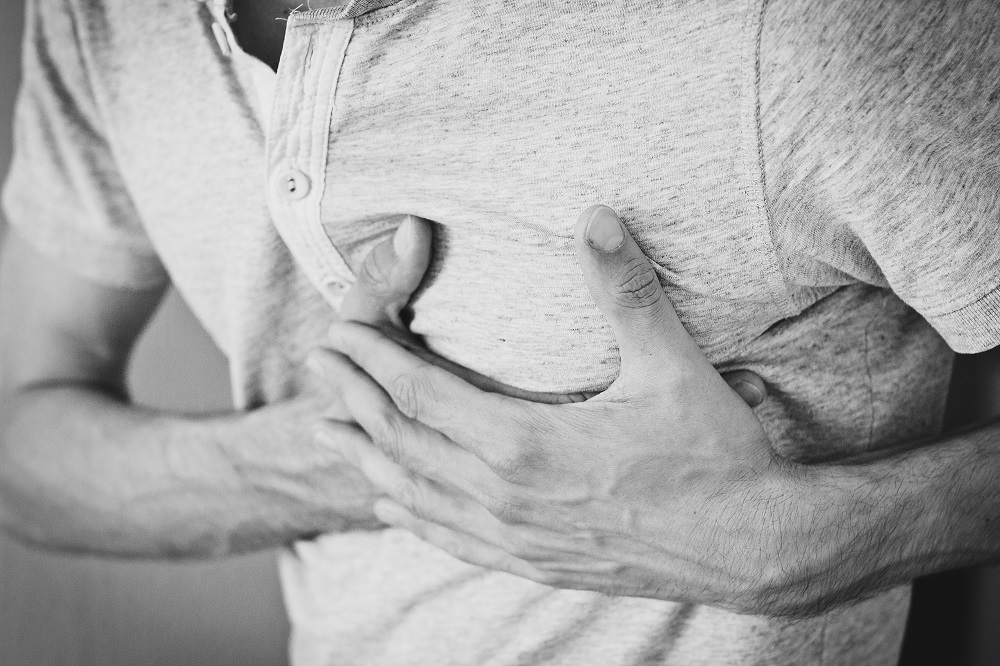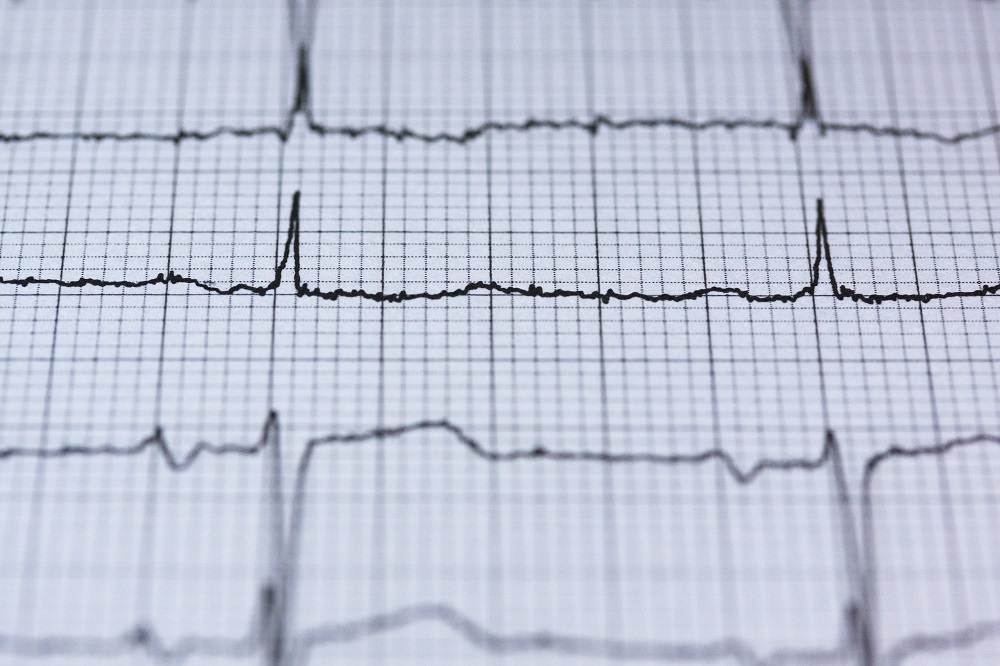Why do we experience chest pain during a run? Running can be painful – both physically and mentally. Even if you are reasonably fit, there will be runs where everything hurts and you really, REALLY, want to quit. This is normal. Running is a high-impact exercise, and we all have good and bad days. The good days when you feel like you are flying are wonderful; the bad days when a senior on a mobility scooter is faster than you really suck.

It’s important to be aware of your body when running. A certain level of discomfort is to be expected but pain is a warning sign that should always be heeded. Chest pain is one type of pain that could have several causes, most of them benign. If you have ever suffered from chest pain during a run, it’s understandable that you might have panicked just a little bit. However, it isn’t necessarily a cause for concern or a trip to the Urgency Room. Read on for four potential causes of chest pain during a run – and what to do next.
Breathing Heavily
Gasping for breath can often afflict newbie runners pushing too hard. Chest pain in this instance is a sign you are running at too high an intensity. Pushing yourself is good, but it should be done in moderation, and not until you have built up a degree of endurance. If you’re a beginner, you should start slow and easy – not just when going out for a run, but when doing any fitness activity. Starting with light exercises will help your muscles get used to the movements, and this will prevent delayed onset muscle soreness.

If you have chest pain and you can barely breathe while running, slow down until your heart rate slows and you can jog more easily. Try to keep your training pace relaxed in the early weeks. If you can hold a conversation while jogging, you are hitting the right pace.
Heartburn
Heartburn is unpleasant – and even more so during a run. Heartburn is that horribly burning sensation when the contents of your stomach hit the back of your throat, which can lead to chest pain. It can sometimes happen when we eat a meal and don’t allow enough time before going for a run. If you suffer from heartburn, keep a food diary and try to identify what foods cause problems. For some runners, it’s spicy foods that are the trigger; others can’t handle caffeine.

Should you eat before running? Yes, as long as you let your stomach digest the food. If you’re having a large meal, you should wait for 3-4 hours before going out for a run. If you’re having a light snack, it’s best to wait 30 minutes to 2 hours before running. What foods should you eat before a run? Everyone is different when it comes to digestion and food intolerances, however, the best foods to eat before running include: avocado toast, banana and nut butter, fruit smoothie, oatmeal, turkey sandwich, energy bars and berries. Avoid large amounts of caffeine, legumes, spicy food, high – fiber veggies and fruits such as broccoli, artichokes, apples, pears, as well as high – fiber foods like red meat, bacon, cheese, etc.
Cramps
A sharp pain around your ribcage could be caused by the intercostal muscles cramping. This type of pain is usually localized and typically worsens when you continue moving.
Spontaneous muscle cramping in occupational settings involving hard physical effort suggests that high ambient temperature and large sweat losses accompanied by the ingestion of large volumes of plain water may be risk factors, and there is some evidence that the risk is reduced by the addition of salt to ingested fluids.
Maughan, R. J., & Shirreffs, S. M. (2019). Muscle Cramping During Exercise: Causes, Solutions, and Questions Remaining. Sports medicine (Auckland, N.Z.), 49(Suppl 2), 115–124. Full article available at: https://doi.org/10.1007/s40279-019-01162-1

If you experience this type of chest pain during a run, try slowing down and rehydrating or holding your breath for a few seconds before breathing out on a count or three. During a long run, the underlying problem could be a lack of electrolytes, so glug some sports drink down at regular intervals. When doing high intensity workouts, your body can lose large amounts of water through sweating. This is why you need to remember to always carry a large water bottle with you and take frequent sips to rehydrate your body.
Angina
Angina is a pre-curser to heart problems and chest pain on exertion that goes away when you rest needs investigating. Symptoms include shortness of breath, chest pain, heavy sweating, and palpitations. You may also feel dizzy and sick if you try and push through the pain. If this sounds like you, do not wait for the pain to go away on it’s own book a health check immediately.

Experiencing chest pain can be a terrifying ordeal. There are various causes of non-cardiac chest pain, and in many cases, it is not life threatening. However, you should never ignore chest pain during a run. If you are at all concerned it could be something serious, speak to your doctor as soon as possible. It’s best to figure it out early on, just so you can be at ease and continue going on runs without worrying about your chest pain!